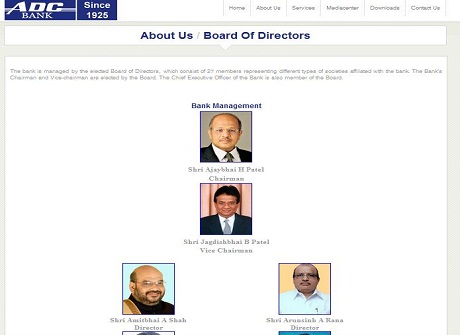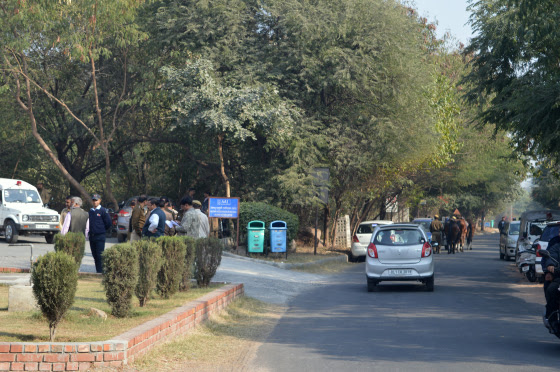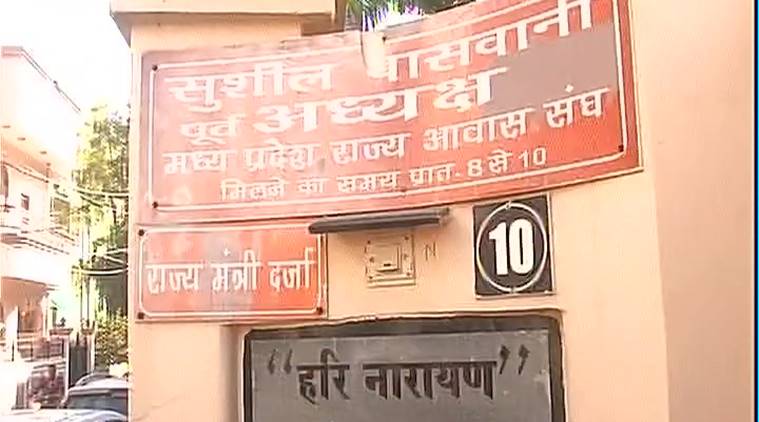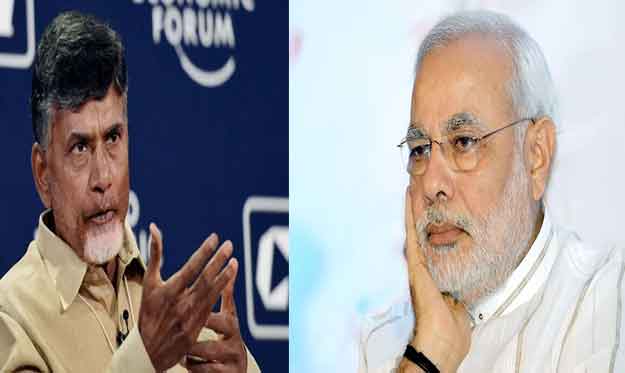The Ashram Road Ahmedabad District Co-operative bank reportedly got a whopping Rs 500 crore deposit, just after the notes ban; the bank has BJP President as Director. ED and IT officials conducted a 6-hour long raid on December 19
Reportedly, three days after the announcement of demonitisation, that is between November 8 and 12, 2016. a co-operative bank of which BJP President Amit Shah is Director has got Rs. 500 crore deposit which is now being investigated by both the Enforcement Directorate (ED) and Income Tax Authorities. The bank is located at Ahmedabad Ashram road.

These raids or searches too, unlike say the 24-hour long raids on the home of Tamil Nadu top bureaucrat, chief secretary P Rama Mohana Reddy, have been received with a media silence or can we say black out?
On Wednesday, December 21, Income Tax officials claim to have recovered nearly Rs. 30 lakh in cash and five kilograms of gold during raids at the bureaucrat's official residence in the city's upscale Anna Nagar locality and seven other locations, including at homes of his son Vivek Rao and some relatives in Chennai and Chittoor in neighbouring Andhra Pradesh. Earlier this month, taxmen found over 100 kg of gold, Rs. 96 crore in banned 500- and 1,000-rupee notes and Rs. 34 crore in new currency notes in raids at the homes of three Tamil Nadu businessmen, one of whom, J Sekhar Reddy, allegedly has business links with the Mr Rao's son. Mr Reddy was arrested on Wednesday.
Compared to this, there has been a relative media silence on the raids conducted by the ED and IT officials at the Ahmedabad District Cooperative Bank on December 19. Outlook Hindi has however carried a story.
A large part of this 500 crore, has been reportedly deposited on the same night of announcement of demonitisation. In all, this bank has 190 branches but the money in such large amount is deposited only in its head office at Ashramam Road. The money has started flowing to the bank just after the demonitisation announcement on the night of November 8.
Small vendors and farmers form the majority depositprs/ customers of the bank. This strengthens the doubt that, form where did such a huge amount of 500 crore was deposited in this bank. The IT Department is also verifying the CCTV visuals from the bank. Various co-operative banks in Gujarat were also piled up with such illegal money deposits. Sabrangindia contacted the bank to speak to Manager of the Bank, Mr Bahedia but due to a power cut, the bank was unable to transfer our calls.
This also indicates that, those who are in close ally with BJP would have deposited huge amounts in co-operative banks after demonitisation. Among eighteen Co-operative banks in Gujarat, seventeen are under the governance of BJP. The Co-operative bank in Gujarat has got deposits of Rs. 200 crore, where the Bank Chairman is a Gujarat Minister ShankarBhai Chaudhri.
Has de-moentization been a ruse, then for the ruling BJP to converting their black money through the co-operative banks in Gujarat, which are directly under their control; while trying to destroy the Co-operative banks in Kerala and other states ?
As directed by RBI, the IT department and the Enforcement Directorate has now begun conducting investigations into the suspect co-operative banks in Gujarat.
According to the Ahmedabad Mirror, the Enforcement Directorate on Monday conducted a seven hour long search at the premises of a district cooperative bank’s branch on Ashram Road and even seized some documents related to their operations, officials said. The official website of Ahmedabad District Co-operative (ADC) Bank, BJP national president Amit Shah is one of its directors. An ED official attached to the zonal office in Gujarat confirmed later on Monday, December 19 confirmed that, “ED had conducted searches at ADC Bank’s head office on Ashram Road.” The raid was conducted based on suspicions of discrepancies in exchange and deposit of old Rs 500 and Rs 1,000 notes following instruction from the head office.
This is the second such search conducted by the ED on the Ahmedabad District Cooperative Bank after the announcement on demonetisation. Bank officials have publicly confirmed the search was conducted and said they are extending full cooperation to the officials. “ED officials visited our bank for a routine check on Monday. They left at 6 pm,” said Chairman, Ajay Patel. Sources however said that the search was conducted over seven hours, following which, the ED officials checked several documents, recipes and even the CCTV footage. After demonetisation was announced last month, the RBI had barred the district central cooperative banks (DCCB) from exchanging and depositing old Rs 1,000 and Rs 500 notes. How then did this bank escape this bar when other cooperative banks have faced tremendous hardships all over the country?
The first raid was hardly reported at all by the media though former BJP MLA Yatin Oza had created waves on news web portals with an open letter to the prime minister Narendra Modi claiming that he had video evidence to prove how henchmen close to the ruling BJP had, queued up to deposit large sums at the Ahmedabad District Cooperative Bank. Monday’s raid by the ED and IT seems to bear this out. You Have Fooled the People, Narendrabhai, says ex-Confidante Yatin Oza, showcased by Sabrangindia by November 18.
Earlier, the Ganashakti paper in Kolkatta had exposed how, close to Rs One Crore was deposited, mysteriously in only one account of the Bharatiya Janata Party (BJP) on November 8, 2016, hours before the ‘secret’ decision taken by PM Modi and his cabinet to declare 500 and 1,000 Rs notes illegal.
The question raised then and which still remains is, if this is what happened in West Bengal, what about the party accounts in other states?
And what about the accounts and dealing of parent organisations like the Rashtriya Swayamsevak Sangh (RSS) and it’s affiliates?
Did they also know and benefit from the previous knowledge much like insider trading, which is an offence?
All over the country, small and big depositors have faced tremendous hardships over the past 43 days since the Modi government’s ill-considered move to announce the sudden de-monetization of the Rs 500 and Rs 1000 older notes.





